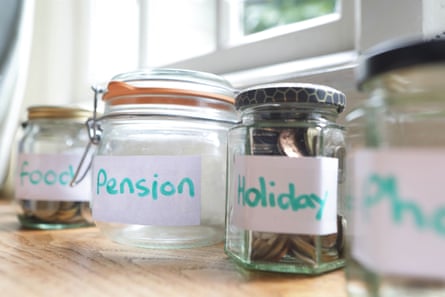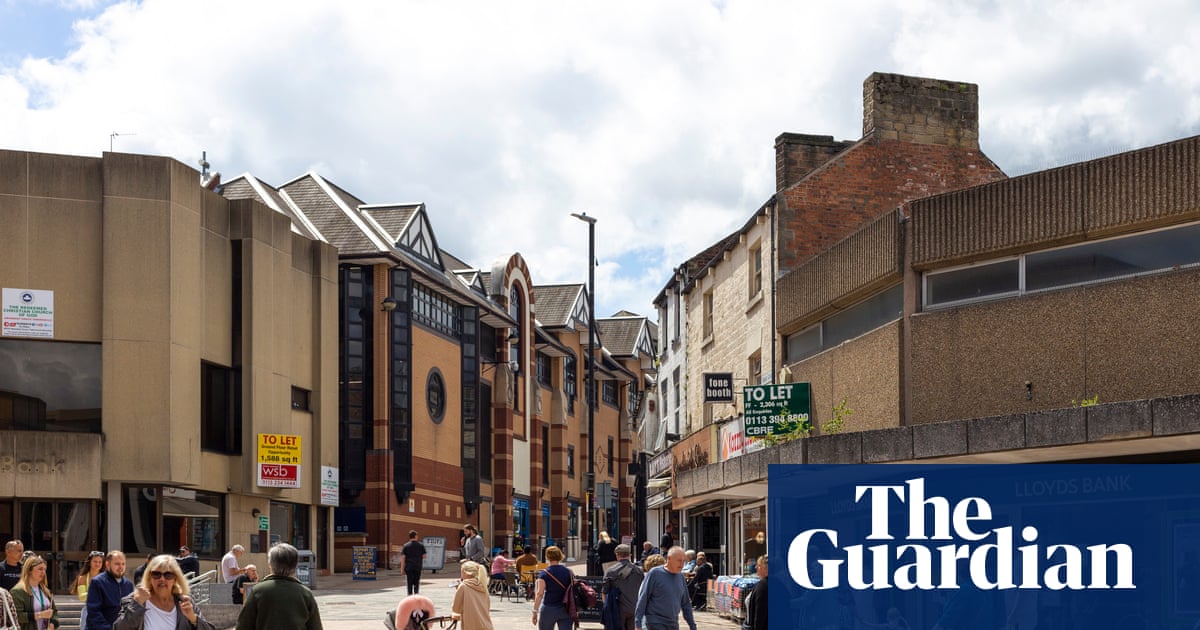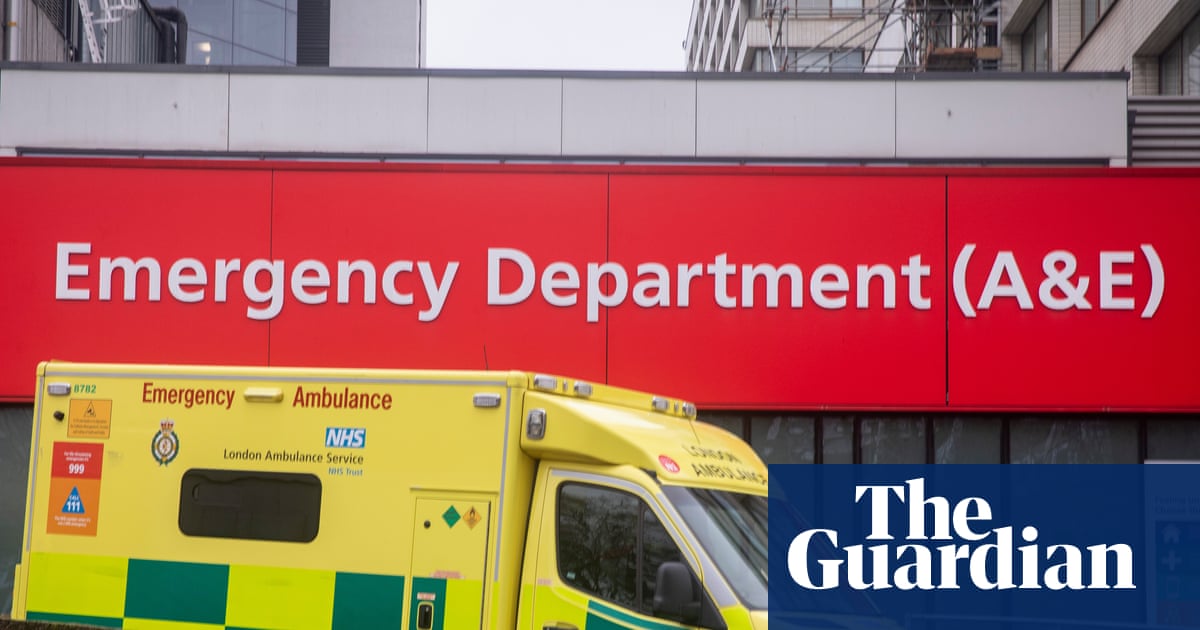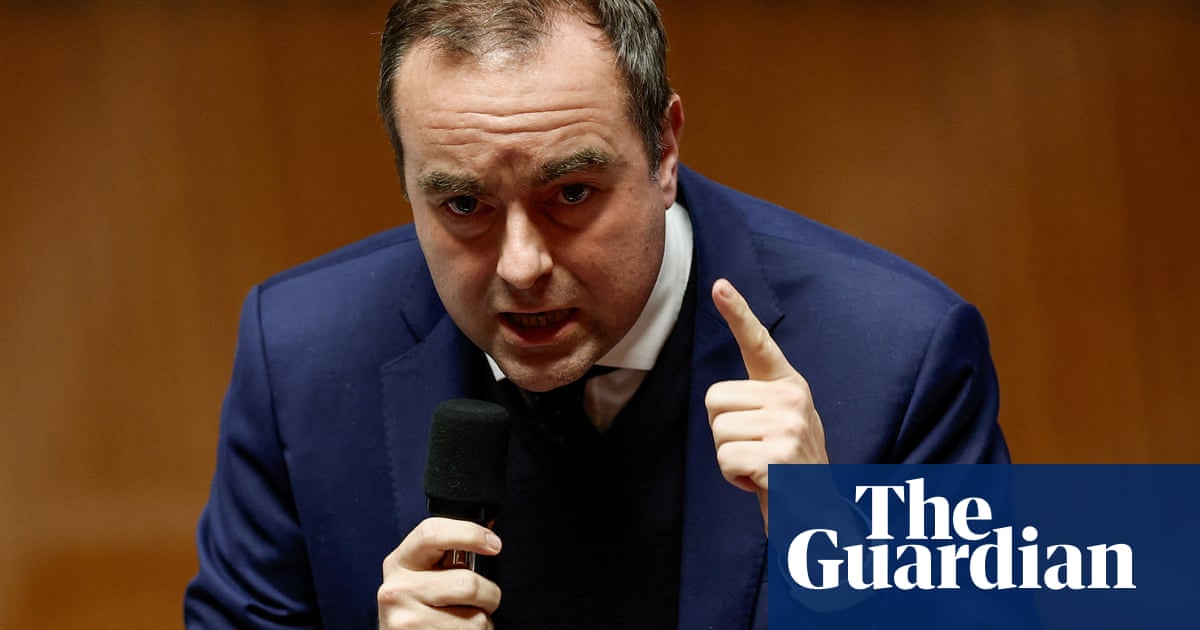Andrew, a writer in his mid-30s from Essex, would be considered middle class by most, but his financial setup is precarious.
“I have £4k in my savings account, and around £4k in stocks and shares. With a mortgage, childcare fees and other living expenses to cover, our monthly outgoings are always at least £2,800. Our savings would quickly vanish if our household income ceased,” he said.
Andrew has managed to save £30,000 into a workplace pension, but feels unable to continue saving at the moment.
“We have completely stopped setting money aside, and living life has become very much payslip to payslip. Things which would have previously been routine, like the odd weekend away or day out with our child, have become much rarer. I have substantial concerns about the way in which this country is going.”
Andrew was among scores of people from across the UK who told the Guardian how much money they had been able to save, and how the size of their nest egg – or lack thereof – had been shaping their plans and lifestyles. Many of them were middle-class professionals who reported that the rising cost of living had forced them to stop putting money into savings and pensions, making them feel more financially insecure.
People who got in touch broadly fell into two camps: those who had aggressively prioritised saving for years and had achieved sizable pension pots and emergency funds; and those who had been unable or barely able to save, often owing to high living costs such as rising rents or mortgage payments, childcare, or student loan repayments.
The personal savings rate of UK households reached a record high in 2020, during the first coronavirus lockdown, resulting in many people losing the ability to potentially claim means-tested benefits such as universal credit as their funds exceeded the maximum permissible amounts.
Since then, households have faced high interest rates and a persistent cost of living crisis, forcing many to tap into savings to cope with rising prices. The number of individuals, for instance, who made an unauthorised withdrawal from a Lifetime Isa, and therefore paid a penalty fee, increased by 139% between 2020/21 and 2023/24.
According to comparison website Finder, the average person in the UK has £16,067 in savings in 2025. However, 39% of people have £1,000 or less in savings, and 23% have £200 or less.
“I have saved exactly £0,” said Ryan, 30, from Glasgow, who works full-time for a bank, one of various respondents belonging to the 16% of UK adults who have no savings at all. That rises to 18% among millennials and generation X.
“[Should] anything go wrong I am screwed,” he said. “It’s not for lack of trying, but some months I even go without food, all my money goes towards bills. I’ve got no social life and can’t afford to do anything for fun.”

Carrie is a customer services worker in her 40s from Manchester. She has managed to build up a salary sacrifice pension pot of £70,000, but was among those who reported having “zero savings” for emergencies because of unforeseen circumstances.
“My husband and I now rely solely on my salary as he is long-term sick. He lost his job while waiting for an NHS referral. If I lost my income, we would have to sell our belongings … and move in with either my or his mother.
“We are in rented accommodation on a monthly rolling contract. With no savings I worry about what we would do if/when the landlord wants to sell as we have no deposit. My pension is unlikely to give us a comfortable retirement as we’ll very likely still be renters.”
Others who reported having no savings said they had spent their disposable income on discretionary purchases such as travel and going out, among them Marceline, 32, a local government employee from Essex.
“I have no savings at the moment,” she said. “I spent last year paying debts and then I had a funeral abroad and lent my sister money so she could close on a house.
“[Although I have no savings now], my lifestyle is still the same. I did go abroad four times last year. Next year I hope to start properly saving for a house.”
Robert, 40, an insurance professional from Birmingham, was among those who reported having squirrelled away enough money to feel secure, but flagged that this had only been possible by living extremely frugally, not starting a family and forgoing most leisure experiences.
“I earn a good wage and have saved £95k [into my emergency fund] and could probably cover my essential living costs for two and a half years,” he said.
“I’ve been very disciplined with my money by avoiding having too many expensive holidays, cars, meals out or clothes. I do not have children. I’ve saved a little over £350k into private pensions. I have a fairly extreme attitude to money. However, I do feel like I’ve missed out on experiences in my best years.”
Various people said they were practically unable to save because of the cripplingly high living costs in big cities, where they often needed to be for work.
“I have £1,500 in savings, which would only cover my expenses for a month,” said Kira, 28, a communications manager from London with debts remaining from the pandemic.
“I’ve struggled to save due to increasing rent and other living costs. I’m in an irritating situation, as I work in the arts and wouldn’t be able to find an equivalent job outside London unless I’d be taking a significant pay cut.
“I don’t have a private or workplace pension, I need the money at the moment so opt not to pay into it.”
Kira resents having to pay £800 a month to live in a shared house with four other people, and being unable financially to move in with her boyfriend.
“By the time my mum was my age, she owned her house and had two children, and she was only earning a slightly above average wage. That would be completely impossible for me and most of my peers.”
Jon, a 45-year-old firefighter from Shropshire, was among those who had managed to put aside some savings earmarked for a specific purpose.
“We keep around £2,000 in an emergency fund and have around £15,000 in an Isa. We plan to put this into our mortgage next year though when [our interest rate increases].
“I have pension savings of around £250,000, but with two adults working full-time and no children, it still feels like we are close to the edge. We usually have around £400 per month to save or overpay the mortgage, but if there were no overtime shifts I’d struggle to do that.”
Neal, 43, a full-time professional from North Yorkshire, has managed to save £6,000 so far, equivalent to four months’ outgoings.
He said he had “always struggled to save” and only recently had been able to start saving after clearing debt and a student loan. “I’m lucky as I’m married, our costs are shared and we have a not too large mortgage. It’s terrible that only now at 43 I’m finally building up my savings. I’m constantly worried about money,” he said.
With £135,000 in his workplace pension thanks to generous employer contributions, the couple is now planning to have their first child.
“I’m hoping to get to a point where I can spend my salary rather than save excessively,” Neal added. “However, I’m acutely aware that this all depends on getting my monthly pay cheque and feel that is increasingly uncertain, given these difficult times.”

 2 months ago
52
2 months ago
52

















































